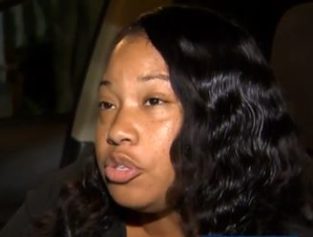For the first time in 30 years, North Carolina brothers Henry Lee McCollum and Leon Brown, who were convicted of rape and murder in 1984, may get to sleep in their own beds tonight, as Superior Court Judge Douglas B. Sasser ruled Tuesday that he was vacating their convictions and ordering their release.
It was an emotional conclusion to a case that many legal experts had long pointed to as an example of the riskiness of the death penalty. McCollum was on death row while Brown, initially also on death row, was serving a life sentence for the 1983 rape and murder of Sabrina Buie, an 11-year-old African-American girl whose body was found in a soybean field with her underwear stuffed down her throat.
Though there was no physical evidence tying them to the crime, police in the small town of Red Springs claimed McCollum, 19 at the time, and his half-brother Brown, 15 at the time, had confessed to the rape and murder. After five hours of intense questioning with no lawyer present and their mother weeping outside the interrogation room, the confession was written out in longhand by the police.
A report in The New York Times said the spectators reacted with a standing ovation when Sasser gave his ruling at the conclusion of Tuesday’s hearing.
“We waited all these long years for this,” said James McCollum, the father of the man released from death row. “Thank you, Jesus.”
The family was deprived the joy of witnessing McCollum and Brown walking out of the courtroom as free men after the hearing because they had to return to prison to file the paperwork for their release, much to the annoyance of their lawyers.
Their release is expected today.
In addition, Artis was living just a few hundred feet from the soybean field where the girl’s body was found — and he reportedly made statements to a former fellow prison inmate and to staff members from the North Carolina Innocence Inquiry Commission, an independent state agency that took on the case, that he is certain Brown and McCollum were not involved in Sabrina’s murder.
Concerning the disturbing behavior of the local police, even as recently as last month the Innocence Inquiry Commission discovered police had been concealing since 1984 a box of potentially critical physical evidence — clippings of Sabrina’s hair and nails and a beer can and gum wrapper found at the crime scene.
When DNA testing, ordered by the commission, was done on materials gathered at the scene of Sabrina’s murder, all the items tested – including her panties and other items of clothes, hairs collected from her shoes, sticks used in the killing, three Schlitz Malt Liquor cans and the butt of a Newport cigarette – excluded McCollum and Brown.
A partial DNA profile from the cigarette butt was found in July to be a match to Artis, who had a history of sexual assaults dating back to 1957.
The case of the two men even wound its way at one point to the U.S. Supreme Court, which in 1994 turned down a request to review the case with Justice Antonin Scalia describing McCollum’s crime as so heinous that it would be hard to argue against lethal injection. In a dissent, Justice Harry A. Blackmun said that since McCollum had the mental age of a 9-year-old, “this factor alone persuades me that the death penalty in this case is unconstitutional.”
Current district attorney Johnson Britt said Tuesday he would not try to prosecute the men again because the state “does not have a case.”
In a recent videotaped interview with The News & Observer newspaper, McCollum described the police interrogation.
“I had never been under this much pressure, with a person hollering at me and threatening me,” he said. “I just made up a story and gave it to them so they would let me go home.”
After he signed the statement, his defense lawyers said he asked, “Can I go home now?”
His brother also confessed, though both recanted at trial. Both men originally received death sentences, but after new trials Brown’s sentence was reduced to life.
“I have never stopped believing that one day I’d be able to walk out that door,” McCollum told The News & Observer. “A long time ago, I wanted to find me a good wife, I wanted to raise a family, I wanted to have my own business and everything. I never got a chance to realize those dreams. Now I believe that God is going to bless me to get back out there.”


